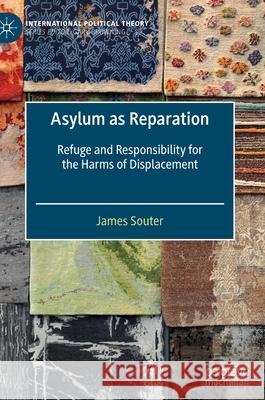Asylum as Reparation: Refuge and Responsibility for the Harms of Displacement » książka
topmenu
Asylum as Reparation: Refuge and Responsibility for the Harms of Displacement
ISBN-13: 9783030624477 / Angielski / Twarda / 2021 / 208 str.
Asylum as Reparation: Refuge and Responsibility for the Harms of Displacement
ISBN-13: 9783030624477 / Angielski / Twarda / 2021 / 208 str.
cena 523,30
(netto: 498,38 VAT: 5%)
Najniższa cena z 30 dni: 462,63
(netto: 498,38 VAT: 5%)
Najniższa cena z 30 dni: 462,63
Termin realizacji zamówienia:
ok. 22 dni roboczych.
ok. 22 dni roboczych.
Darmowa dostawa!
Kategorie BISAC:
Wydawca:
Palgrave MacMillan
Seria wydawnicza:
Język:
Angielski
ISBN-13:
9783030624477
Rok wydania:
2021
Wydanie:
2022
Numer serii:
000400843
Ilość stron:
208
Waga:
0.42 kg
Wymiary:
21.01 x 14.81 x 1.6
Oprawa:
Twarda
Wolumenów:
01
Dodatkowe informacje:
Wydanie ilustrowane











